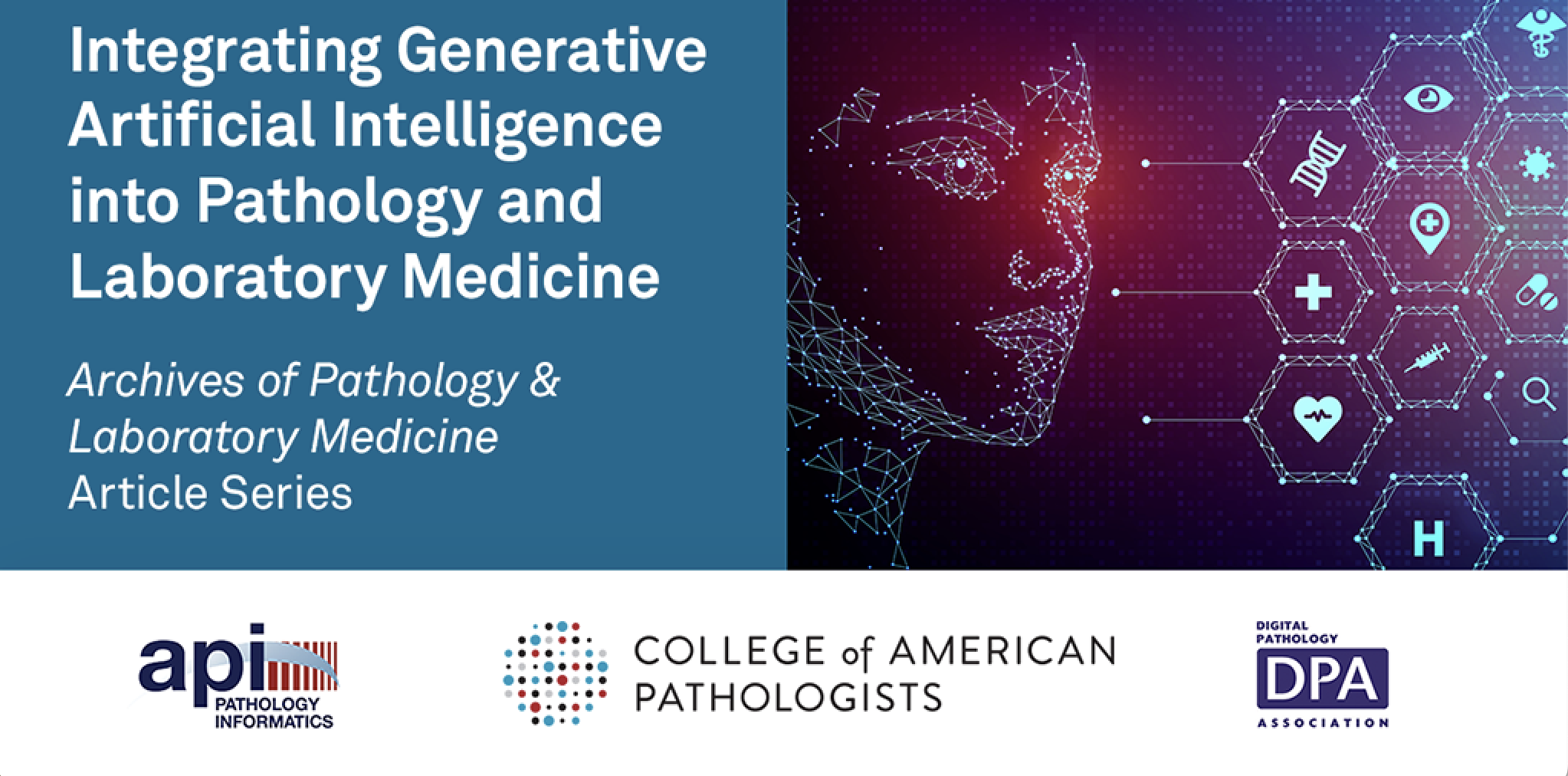
“The rapid pace of GAI advancements can pose a challenge for pathologists striving to stay abreast of the latest advancements and understanding the implications for their work. To address this, experts from the College of American Pathologists (CAP), Digital Pathology Association (DPA) and Association of Pathology Informatics (API) have collaborated on this special collection of articles in Archives of Laboratory Medicine and Pathology. These articles aim to elucidate the benefits and limitations of these tools and their practical relevance for practicing pathologists.” - Ji Yeon Kim, MD (API President 2023-2024)
WEBINAR: May 14, 2025, 12:00 pm - 1:00 pm ET
Join experts from API, CAP, and DPA for an insightful webinar exploring the transformative potential of generative artificial intelligence in pathology. This session, a highlight of our collaborative series, delves into practical applications across anatomic and clinical pathology, innovative educational strategies, and critical ethical and regulatory considerations. Drawing from five key papers, we will examine the opportunities and challenges of integrating this cutting-edge technology into diagnostic workflows, educational practices, and the broader future of pathology. Discover how generative AI is poised to reshape the field and engage in a discussion about its responsible and impactful implementation.
Presenters
M.E. (Doc) de Baca, MD
VP Medical Affairs
Sysmex America, Inc.
Ji Yeon Kim, MD, MPH
Physician Director, Esoteric Chemistry, Immunology, Special Coagulation, Lab Informatics
Kaiser Permanente Southern California
Bobbi S. Pritt, MD, MSc, DTMH, FCAP
Professor of Laboratory Medicine and Pathology
Chair, Division of Clinical Microbiology
Mayo Clinic
Rajendra Singh, MD
Director
Summit Health
Moderator
Eric Glassy, MD
Medical Director
Affiliated Pathologists Medical Group, Inc.
VIEW THE PAPERS HERE:
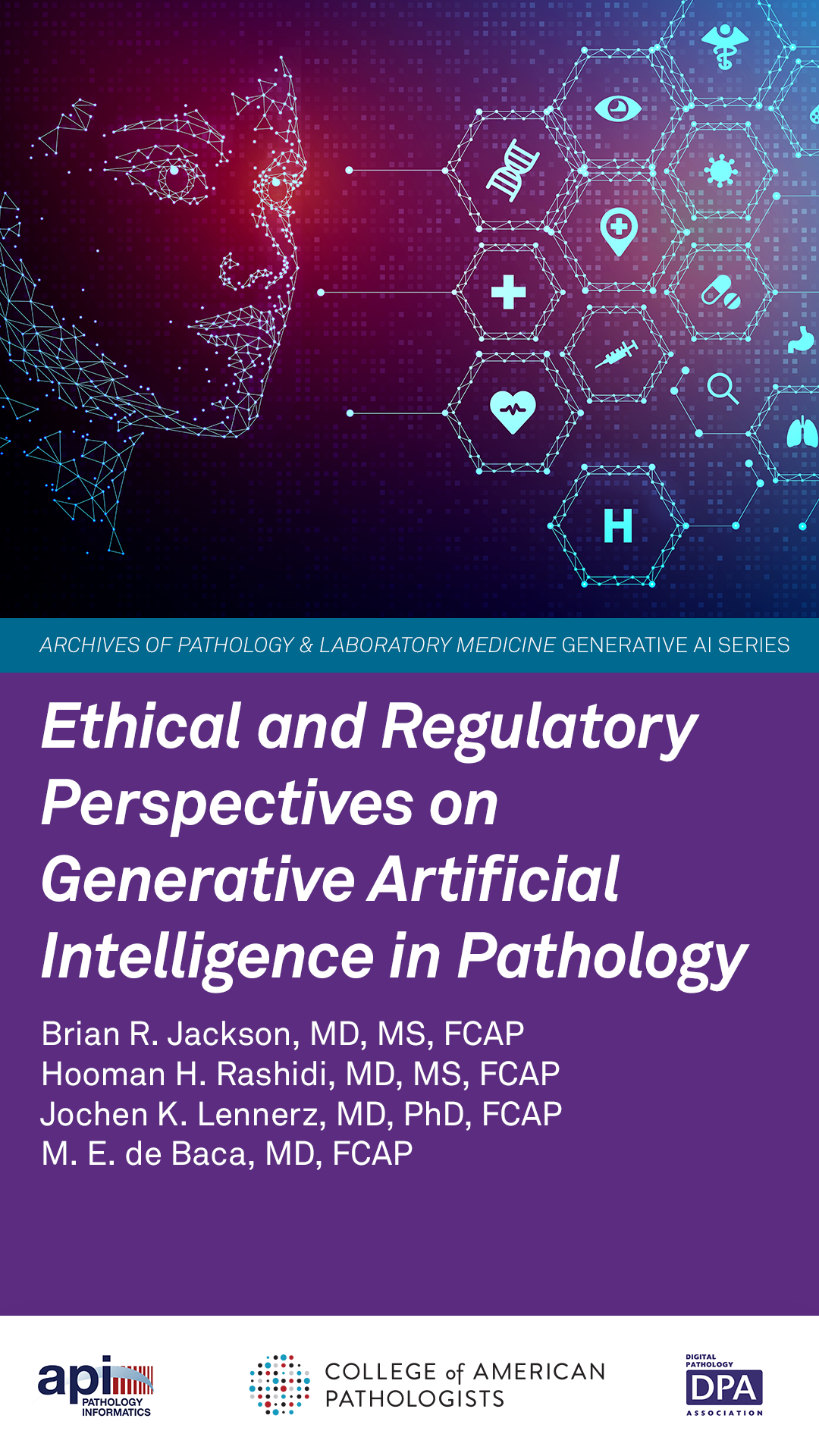

|
Generative AI offers significant benefits for pathology and laboratory medicine but introduces ethical, legal, and social issues that must be addressed before integration into patient care, as Brian Jackson, MD, FCAP and fellow pathologists outline in this paper from CAP, @Digital Pathology Association, and @Association of Pathology Informatics recently published in the @Archives of Pathology & Laboratory Medicine.
Context: Technology companies and research groups are increasingly exploring applications of generative artificial intelligence (GenAI) in pathology and laboratory medicine. Although GenAI holds considerable promise, it also introduces novel risks for patients, communities, professionals, and the scientific process.
Objective: To summarize the current frameworks for the ethical development and management of GenAI within health care settings.
|
|
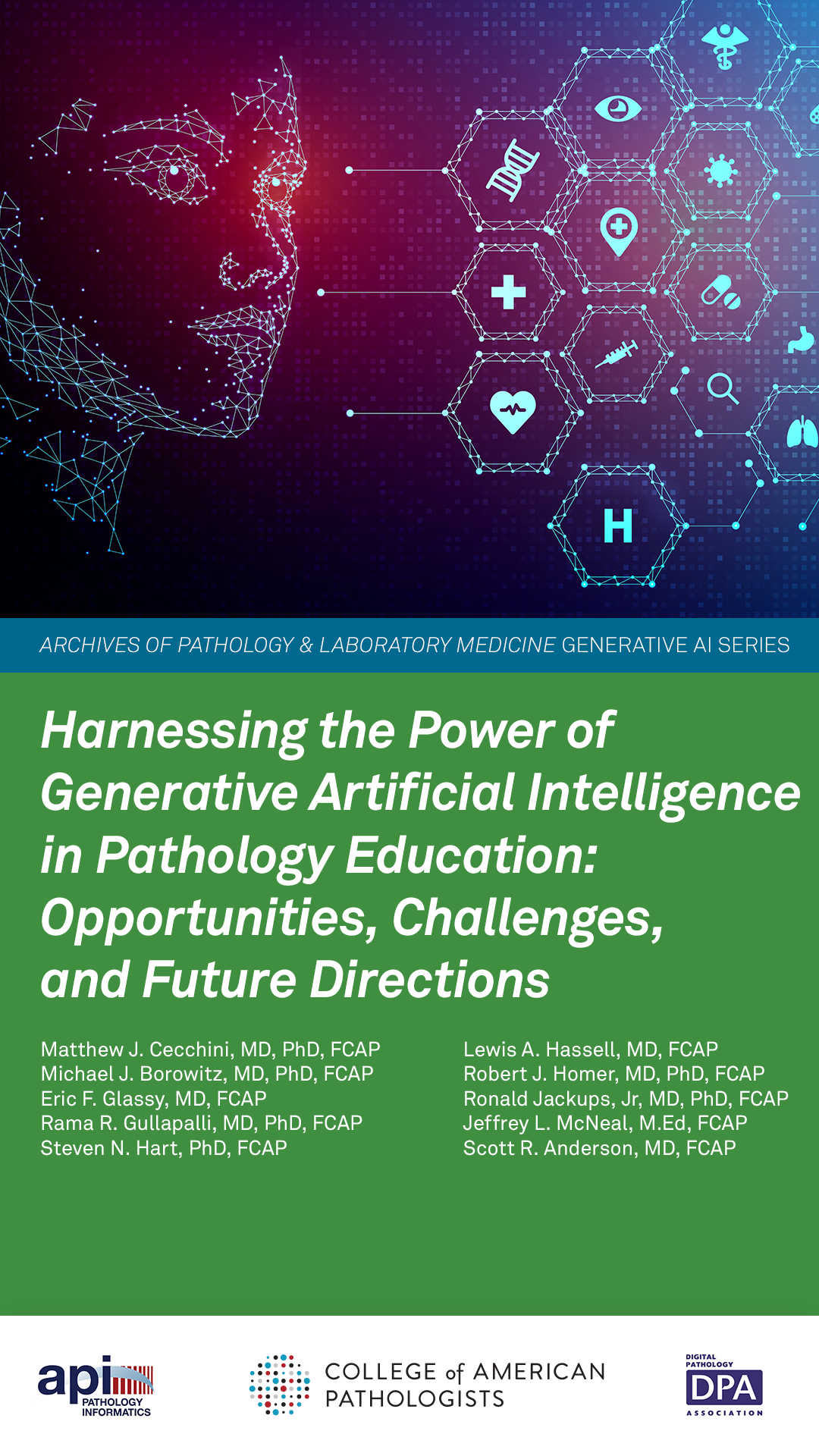

|
Generative artificial intelligence (AI) technologies are rapidly transforming numerous fields, including pathology, and hold significant potential to revolutionize educational approaches. Just published in the Archives of Pathology & Laboratory Medicine, “Harnessing the Power of Generative Artificial Intelligence in Pathology Education: Opportunities, Challenges, and Future Directions,” by Matthew J. Cecchini, MD, FCAP, PhD; Scott R. Anderson, MD, FCAP and fellow #pathologists explores the use of generative AI for enhancing pathology education. This paper is the second in a forthcoming series on GAI and pathology from the CAP, the Digital Pathology Association, and the Association of Pathology Informatics.
Context: Generative artificial intelligence (AI) technologies are rapidly transforming numerous fields, including pathology, and hold significant potential to revolutionize educational approaches.
Objective: To explore the application of generative AI, particularly large language models and multimodal tools, for enhancing pathology education. We describe their potential to create personalized learning experiences, streamline content development, expand access to educational resources, and support both learners and educators throughout the training and practice continuum.
|
|
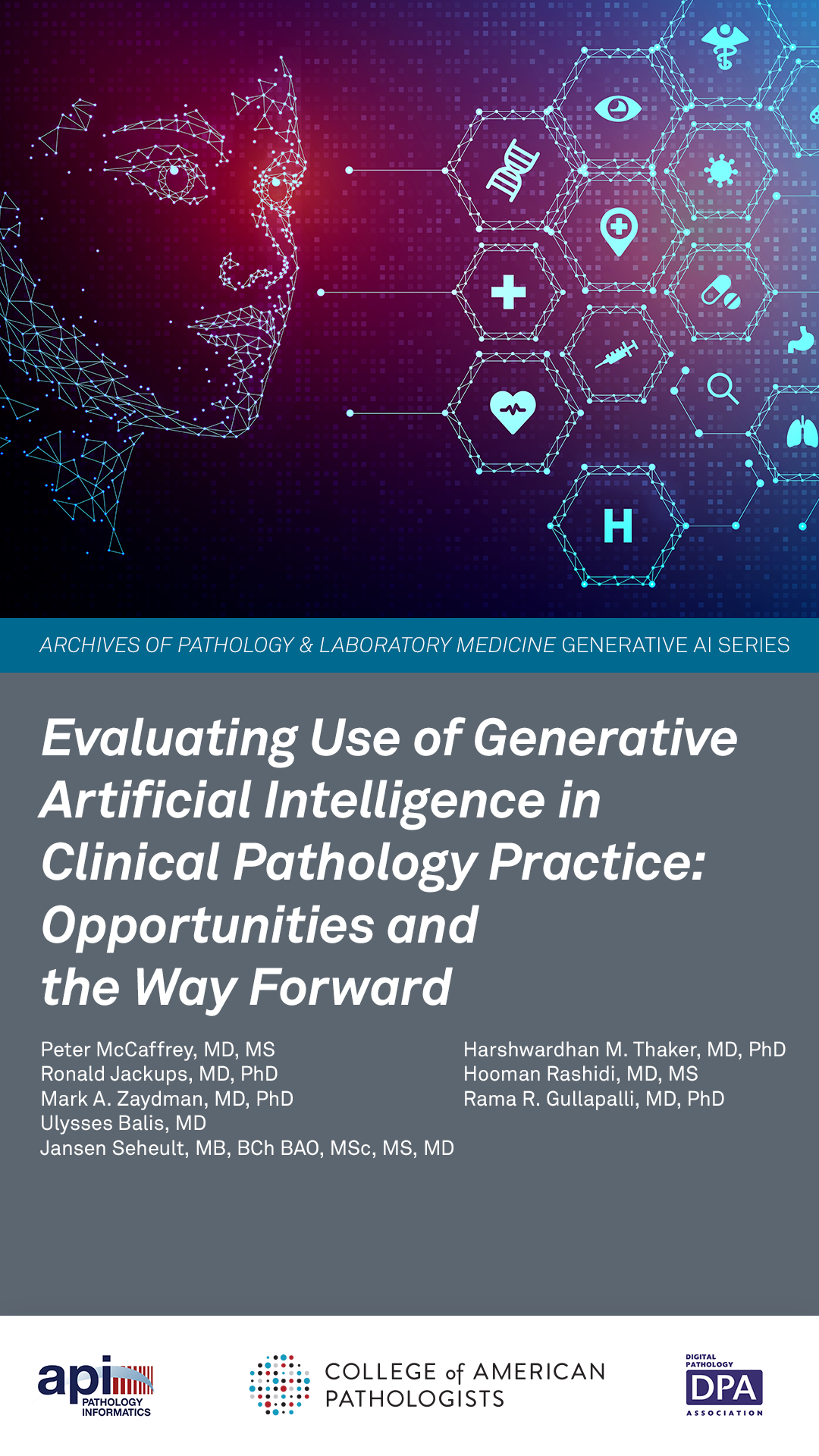

|
Context: Generative artificial intelligence (GAI) technologies are likely to dramatically impact health care workflows in clinical pathology (CP). Applications in CP include education, data mining, decision support, result summaries, and patient trend assessments.
Objective: To review use cases of GAI in CP, with a particular focus on large language models. Specific examples are provided for the applications of GAI in the subspecialties of clinical chemistry, microbiology, hematopathology, and molecular diagnostics. Additionally, the review addresses potential pitfalls of GAI paradigms.
|
|
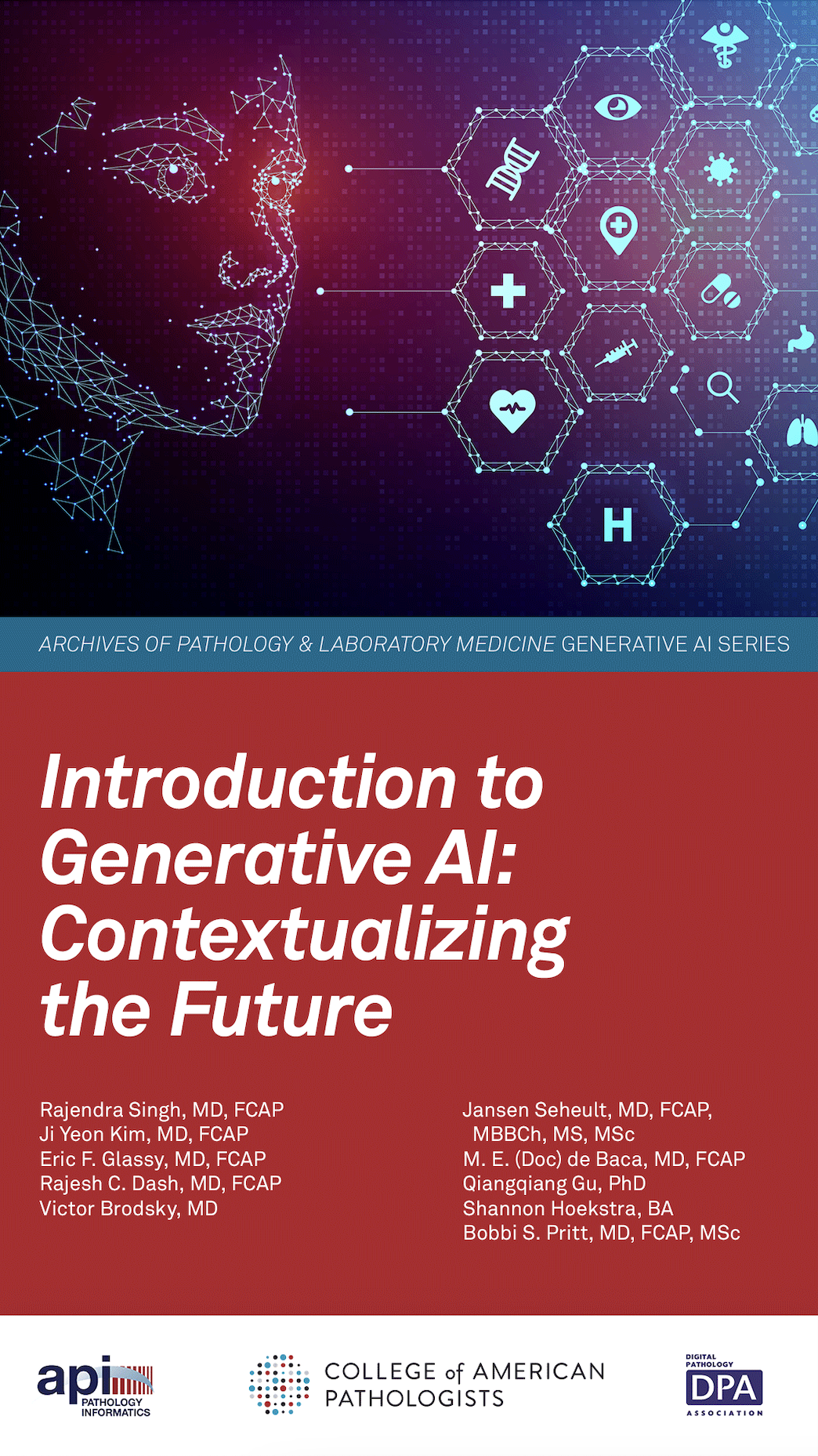

|
Authors:
Rajendra Singh, MD; Ji Yeon Kim, MD; Eric F. Glassy, MD; Rajesh C. Dash, MD; Victor Brodsky, MD; Jansen Seheult, MD, MBBCh, MS, MSc; M. E. (Doc) de Baca, MD; Qiangqiang Gu, PhD; Shannon Hoekstra, BA; Bobbi S. Pritt, MD, MSc.
Context:
Generative artificial intelligence (GAI) is a promising new technology with the potential to transform communication and workflows in health care and pathology. Although new technologies offer advantages, they also come with risks that users, particularly early adopters, must recognize. Given the fast pace of GAI developments, pathologists may find it challenging to stay current with the terminology, technical underpinnings, and latest advancements. Building this knowledge base will enable pathologists to grasp the potential risks and impacts that GAI may have on the future practice of pathology.
Objective:
To present key elements of GAI development, evaluation, and implementation in a way that is accessible to pathologists and relevant to laboratory applications.
|
|
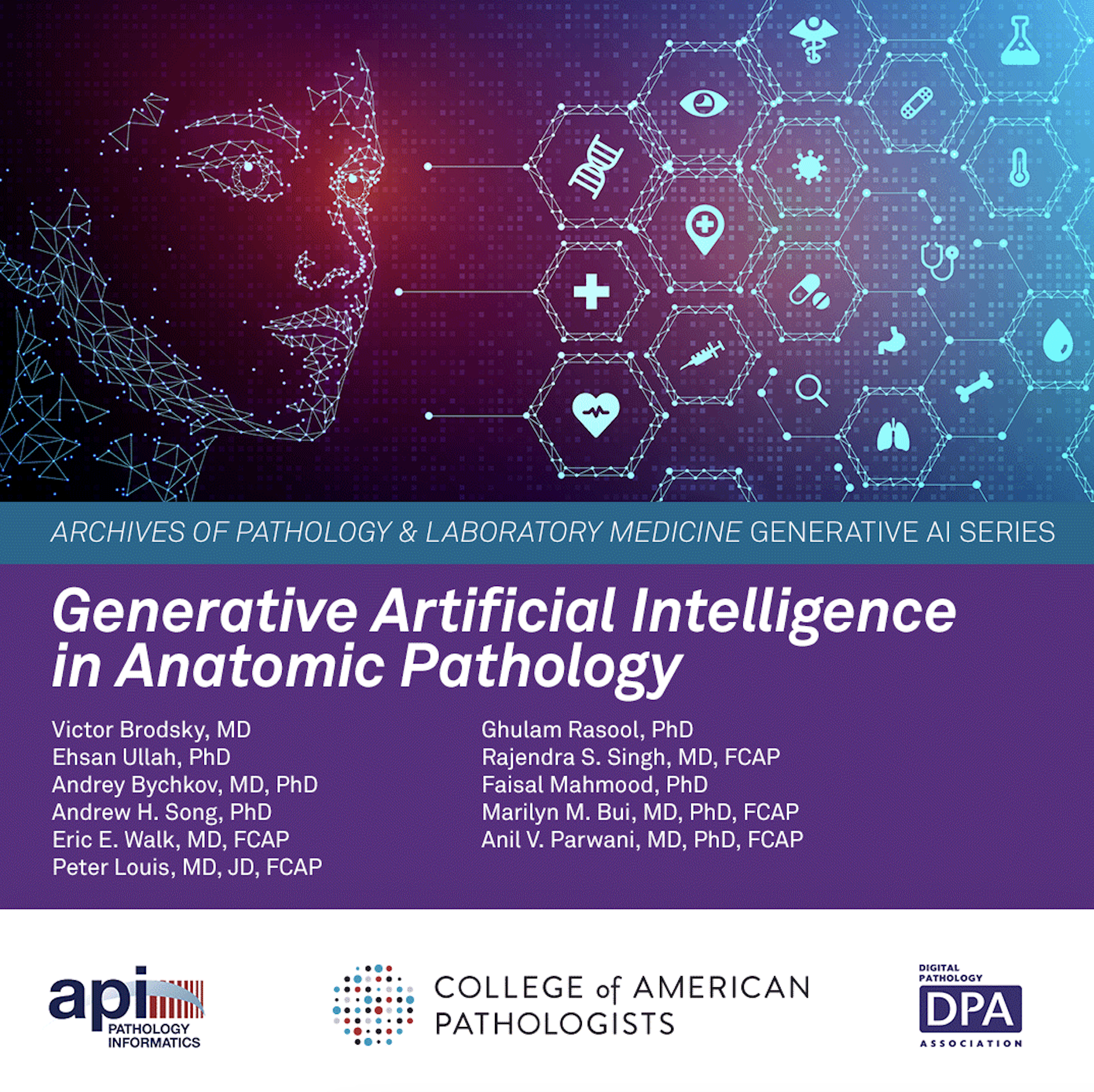

|
Context:
Generative artificial intelligence (AI) has emerged as a transformative force in various fields, including anatomic pathology, where it offers the potential to significantly enhance diagnostic accuracy, workflow efficiency, and research capabilities.
Objective:
To explore the applications, benefits, and challenges of generative AI in anatomic pathology, with a focus on its impact on diagnostic processes, workflow efficiency, education, and research.
|
|